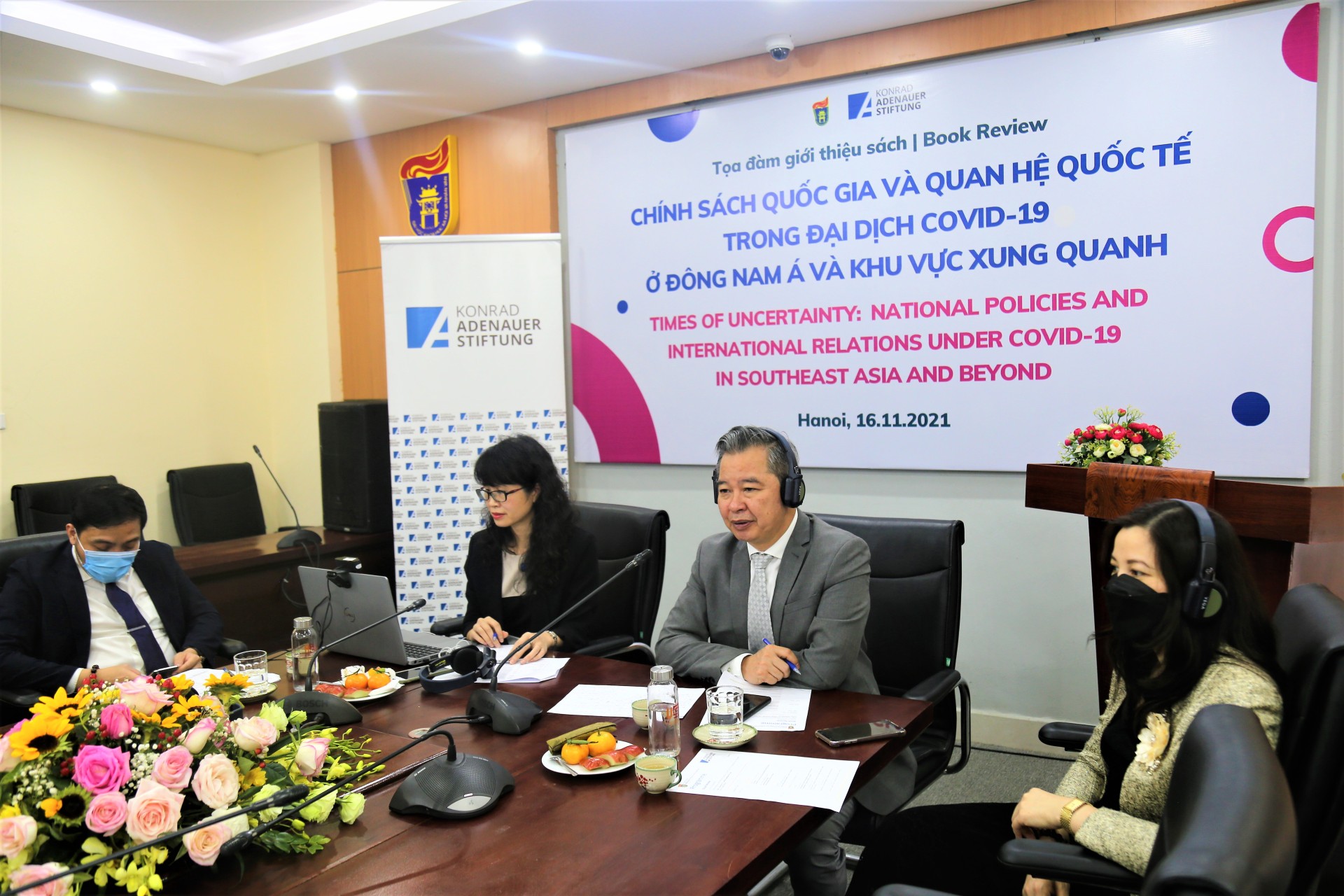The book gathers opinions, research and discussions collected through a workshop organized by the University of Social Sciences and Humanities and the Konrad-Adenauer-Stiftung Foundation (KAS), Germany with the theme "ASEAN and the fight against the Covid-19 pandemic" in May 2021. In this publication, the authors, with their research, have presented different approaches to the effectiveness of national policies, specifically mentioning the practicality of the "dual" goal of simultaneously ensuring the safety of people and developing the economy, as well as the means and resources to achieve it. The research also points out the limitations and advantages of the anti-epidemic policies of ASEAN countries and the surrounding region, thereby drawing lessons from experience.
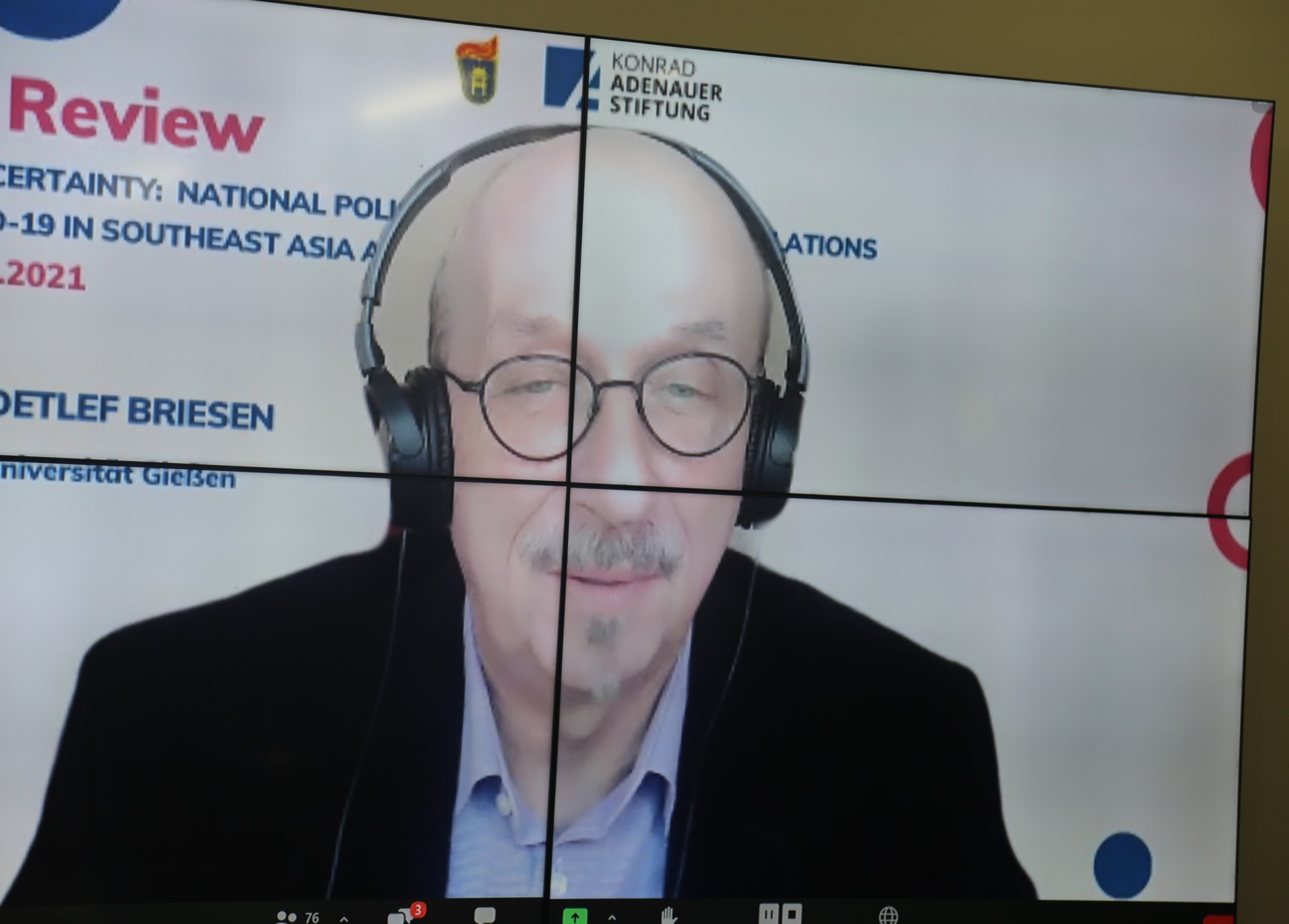 Dr. Detlef Briesen
Dr. Detlef Briesen
Dr. Detlef Briesen, Justus-Liebig University, Gießen, Germany, co-editor of the book, introduced the content and outstanding results of the studies collected in the publication. Accordingly, the book consists of three parts: The first part analyzes the developments of the Covid-19 epidemic situation in Southeast Asian countries and the policy responses of some countries in the region such as Cambodia, Indonesia and Vietnam. The second part deals with the cooperative efforts within the framework of the Association of Southeast Asian Nations (ASEAN) and among ASEAN member countries to cope with the epidemic. The third part provides a picture of the epidemic prevention process of countries outside Southeast Asia such as India, the European Union (EU), Japan, Sri Lanka and China, thereby suggesting some experiences for Southeast Asian countries.
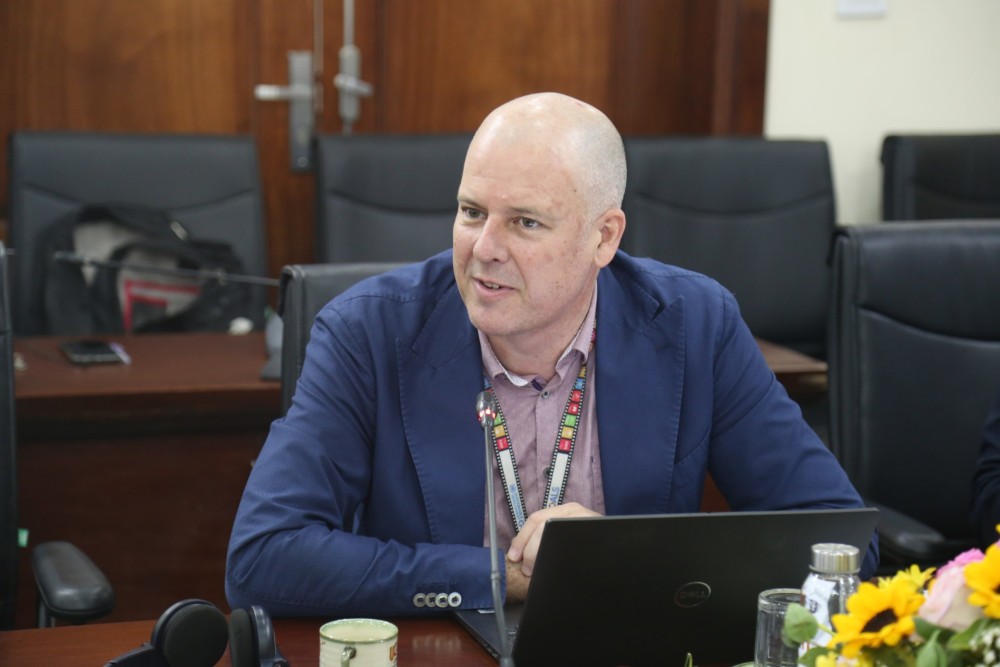 Mr. David Payne
Mr. David Payne
Mr. David Payne - International Project Management Specialist, UNDP in Vietnam, on behalf of UNDP, said that the organization has approached the agencies of the Ministry of Health since the early days of fighting the COVID-19 pandemic in Vietnam. UNDP has cooperated with Vietnamese agencies and sectors with the desire to improve the effectiveness of epidemic prevention, promote innovation, and create an equal and transparent environment in epidemic prevention. UNDP also highly appreciated the efforts of the Vietnamese government in epidemic prevention.
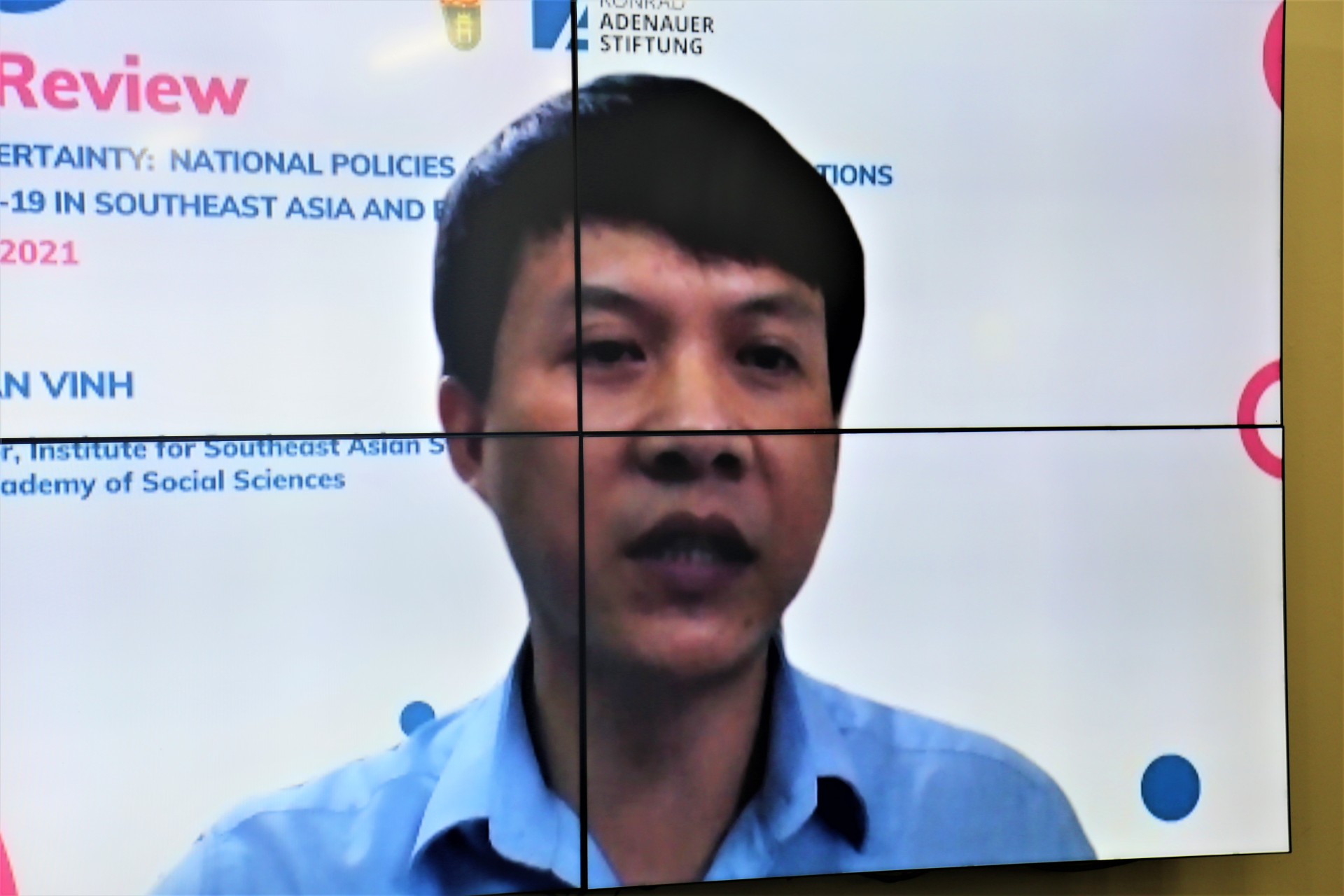 Dr. Vo Xuan Vinh
Dr. Vo Xuan Vinh
Discussing further about ASEAN cooperation in the fight against Covid-19, Dr. Vo Xuan Vinh (Deputy Director of the Institute of Southeast Asian Studies, Vietnam Academy of Social Sciences) said: There are still challenges in ASEAN cooperation, but ASEAN has made collective efforts to fight Covid-19 such as: setting up agendas on epidemic prevention and building a multilateral response strategy; providing and supporting information to external countries when support is needed. ASEAN is also a center for coordinating financial and technical resources to support member countries. Regarding the possibility of building an ASEAN-specific supply chain in developing intra-bloc vaccines, ASEAN countries can share forms and technologies, establish a vaccine sharing fund; connect with external countries such as South Korea to develop that supply chain.
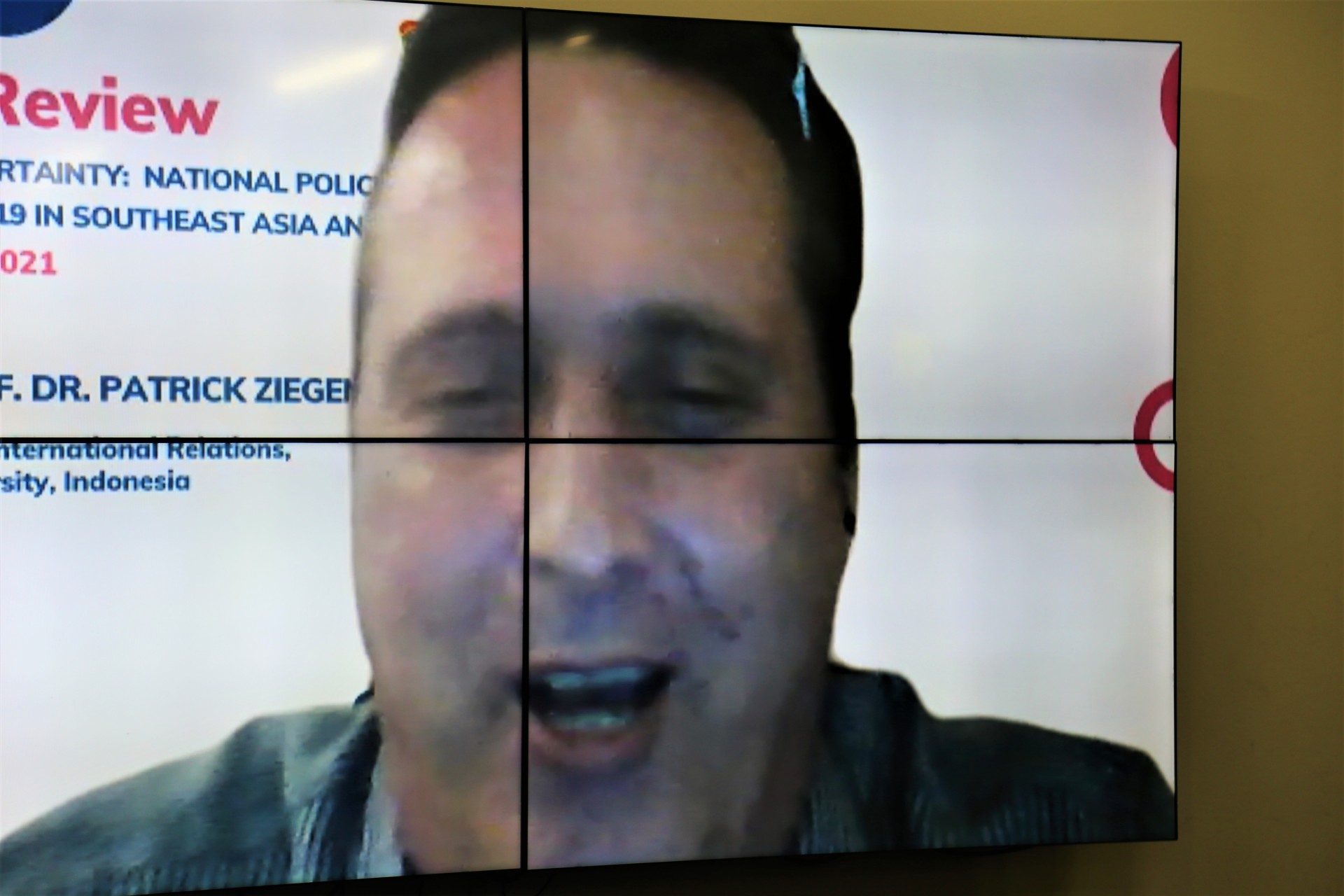 Assoc.Prof.Dr. Patrick Ziegenhain
Assoc.Prof.Dr. Patrick Ziegenhain
Associate Professor Dr. Patrick Ziegenhain (Faculty of International Relations, Presidential University, Indonesia) commented on the limitations and positives of the Indonesian government's anti-epidemic policies: In 2020, the Indonesian government was criticized by the international community for its lack of enthusiasm for fighting the pandemic by not implementing strong social distancing measures. However, Indonesia did not implement strict social distancing, so businesses and individuals in the informal sector were still able to survive the pandemic. In some economically disadvantaged areas in Indonesia, social distancing could not be implemented too drastically. On the other hand, Indonesia has also actively implemented the vaccine program since February and March; with the current vaccination rate reaching 50%, in Jakarta it could have reached 100%.
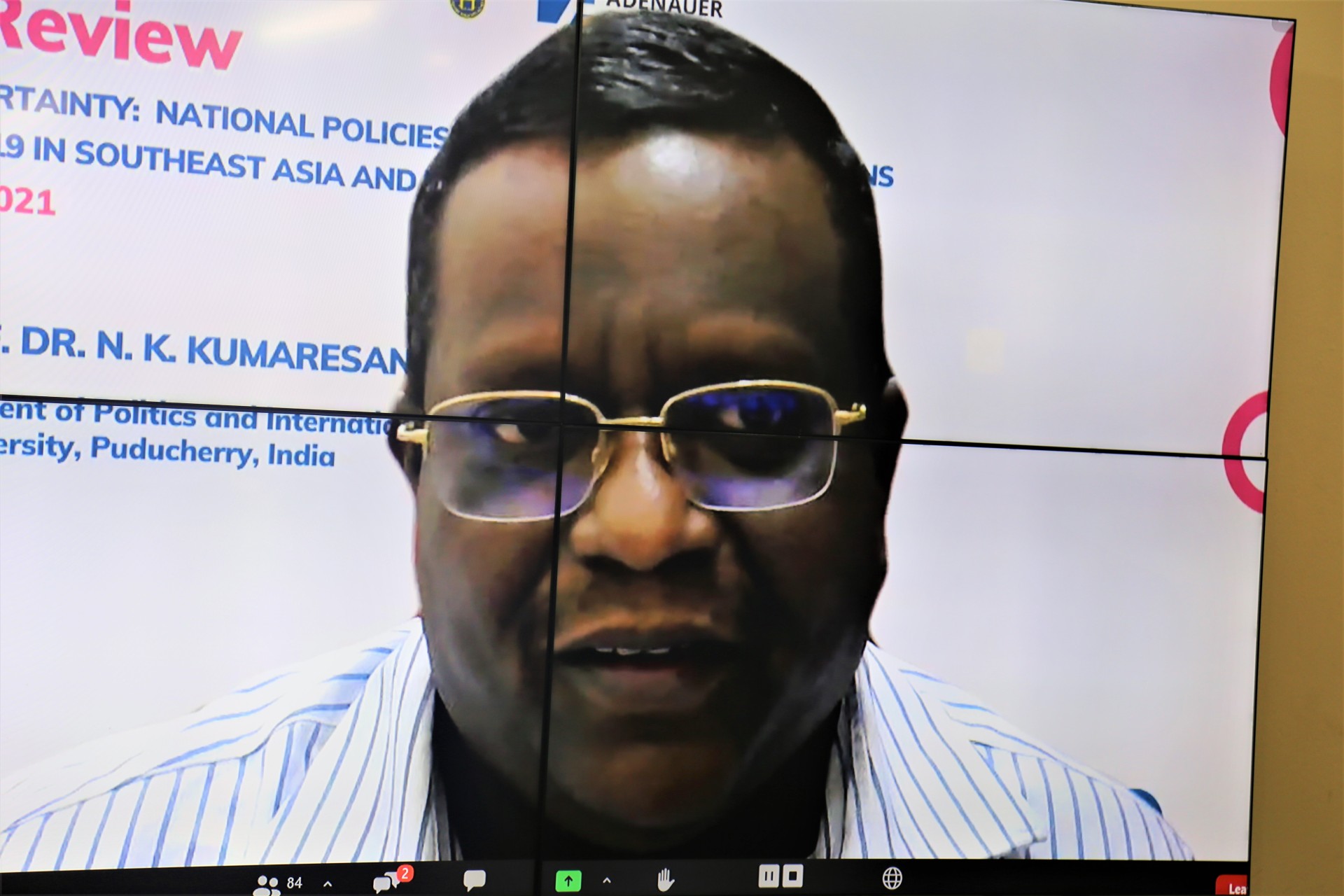
Assoc.Prof.Dr. Kumaresan Raja
Associate Professor Dr. Kumaresan Raja (Head of the Department of Political and International Studies, Pondicherry University, India) emphasized that the differences between knowledge systems and cultures in each country are factors that need to be considered when implementing individual policies in each country. For example, when India implemented social distancing, it created many problems because the relationship between the people and the government was not based on a political and cultural foundation like in other countries. In addition, in Western countries, medical capacity reflects the capacity of the government as well as the support of the people for the government. India is not capable of building a health system that is sufficient to meet the needs of the people, there is a disconnect between the central government and the state government. In India, people do not believe in vaccines but believe in traditional and folk remedies. Therefore, in the context of the Covid-19 pandemic, a lesson learned is to limit nationalism and emphasize building global cooperation systems to coordinate anti-epidemic efforts.
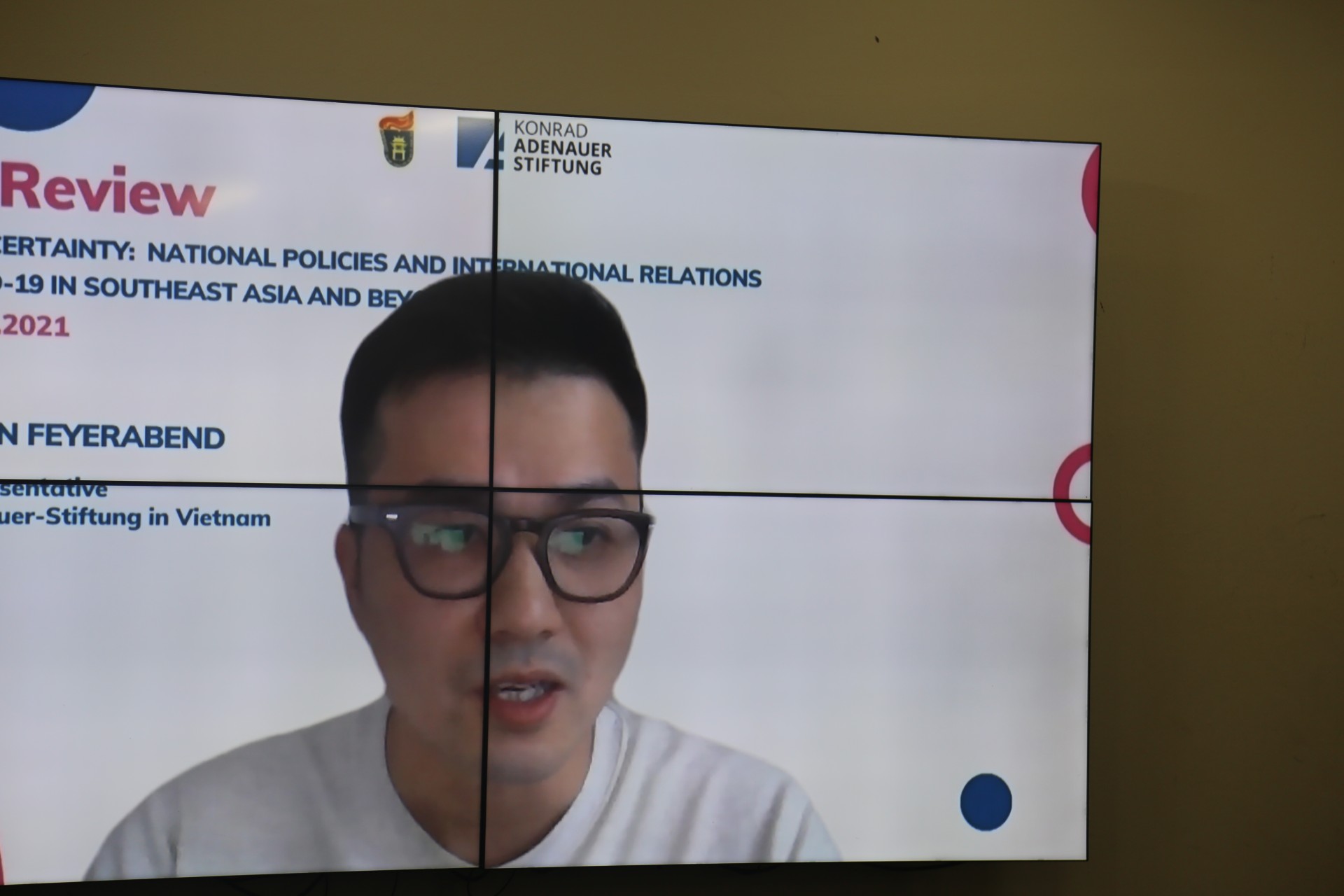 Assoc.Prof.Dr. Tran Xuan Bach
Assoc.Prof.Dr. Tran Xuan BachAssociate Professor, Dr. Tran Xuan Bach (Deputy Head of the Department of Health Economics, Institute of Preventive Medicine and Public Health, Hanoi Medical University) commented on the positive points in the anti-epidemic approach in Vietnam. Accordingly, in the fourth wave of the pandemic, there are many similarities between Vietnam's policies and those of many other countries in the world. One of Vietnam's advantages is the preventive health system, in which the testing and admission capacity is very strong. Another positive point is the very fast vaccine deployment speed, 1/3 of the population has been fully vaccinated with 2 doses. Vietnam has also built effective tracing mechanisms. Currently, statistics show that Vietnam has about 100 million people, a large part of whom have social media accounts; the Government has sent anti-epidemic information to the people in this way. Vietnam has also implemented social security packages for the people and society. In addition, there are cultural and social aspects that affect the anti-epidemic situation; The role of each locality in fighting the epidemic, especially now when localities are given more flexibility in fighting the epidemic. Therefore, Vietnam is likely ready to move to a new normal state.
